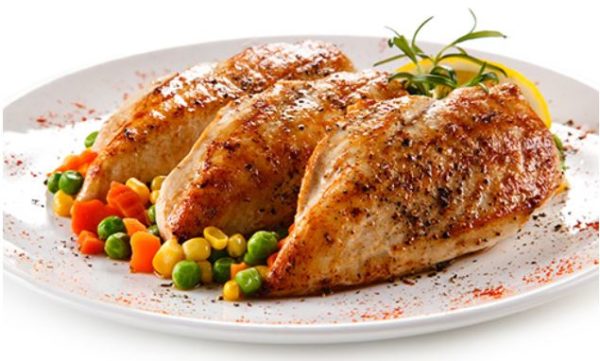
Sometimes, the common food items that we consume can pose a serious risk to our health.
There is a reason why food is treated in a certain way before being consumed.
If not properly cooked, many food items can cause numerous health issues and even poisoning.
Here are 15 food items that can be dangerous if not cooked properly.
1. Potatoes
Eyes tend to grow out in potatoes if it is kept for too long. These contain a toxin called glycoalkaloids and eating substantial quantities of these can cause diarrhoea, coma, cramping and even death in some cases. The best way is to cut off this part and cook the potato well.
2. Chicken
Just because that chicken no longer looks pink, doesn’t mean its thoroughly cooked. Poultry can be a source of numerous disease-causing bacterias like campylobacter and salmonella. Thus, it is a good practice to always cook the chicken thoroughly. Checking the internal temperature of the chicken and cooking until it reaches 165 degrees C is a great measure to ensure that.
3. Cassava
Cassava is a rich source of carbohydrates but it must be soaked in water 24 hours before properly cooking it. Raw cassava contains a toxin that metabolises in the body to produce cyanide. This is even worse with bitter cassavas that are grown during dry seasons. Thus, cooking it properly is imperative.
4. Raw eggs
5. Pufferfish
In Japan, only chefs with substantial experience and exhaustive training are allowed to cook pufferfish. Preparing this fish is risky as the organs hold large amounts of tetrodotoxin, which is poisonous and can cause a painful death. Till date, there is no known antidote to this poison.
6. Pork
A warm parasite identified as trichinella spiralis is found in pork. Pigs get it when they eat other meats. Thus, consuming raw or undercooked pork can pose health issues such as diarrhoea, vomiting, fever, nausea followed by more serious symptoms such as headache, chills, cough, itchy skin etc. Don’t go by the change in the meat’s colour. Cook it properly before consuming.
7. Rice
Raw rice might be contaminated with a bacteria called Bacillus cereus, which can get into the body to cause symptoms of food poisoning. Since they can easily survive in dry conditions, they can live in rice packets in your pantry. If not properly cooked, they can even survive the heat and get into the body.
8. Certain sprouts
There are certain types of sprouts like mung beans, alfalfa, clover sprouts and sunflower that pose a risk of infection if not cleaned and cooked properly. They contain bacteria such as listeria, E. coli and Salmonella, that thrive in the moist and warm environment where sprouts grow. Cooking reduces the risk of food poisoning.
8. Deli meats
Certain deli meats such as ham, hot dogs, salami and bacon can pose a big risk to health if consumed raw or partially cooked. This is owing to the presence of Staphylococcus aureus and Listeria which gets introduced in the meats during manufacturing and processing stages. It is thus, crucial to properly cook deli meats before consumption.
9. Elephant foot yam
10. Live octopus
Many Asian dishes use live octopus, either whole or chopped, that wiggle posthumously. San-Nakji from Korea is one such dish. However, consuming live octopus in any form can be a great health hazard as the suction cups on the tentacles of the octopus can stick to the throat or mouth.
11. Specific cheese
Some types of cheese like Mexican, blue-veined and soft cheese puts one at great risk of food poisoning. These cheese are made of unpasteurised and raw milk, which is much more likely to be contaminated with disease-causing germs than the treated kind. Thus, if you must use these cheese, ensure to properly expose it to heat during the cooking process.
12. Raw milk
Raw milk poses a number of health challenges when compared to pasteurized milk. They have been popular even after having a huge risk of infection. In research conducted in America in the last decade, over 1500 people became sick after consuming raw cheese or milk, which are more likely to hold listeria, E. Coli and salmonella.
13. Red kidney beans
Raw red kidney beans taste bitter when consumed directly off the plant. They carry a toxic substance called kidney bean lectin or phytohaemagglutinin, which can cause poisoning. Symptoms include diarrhoea, vomiting and nausea. Soaking and boiling the beans is recommended before consumption.




